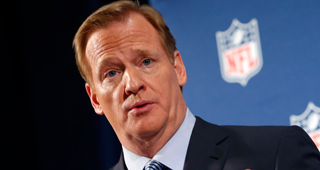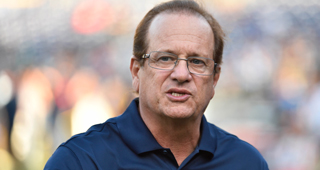Tyler Sash had chronic traumatic encephalopathy before he passed away in September of an accidental overdose.
Sash was cut by the New York Giants in 2013 after suffering at least his fifth concussion.
Sash had returned to Iowa and increasingly displayed irregular behavior, family members said this week.
Sash had bouts of confusion, memory loss and minor fits of temper.
Barnetta Sash, Tyler’s mother, blamed much of her son’s behavior on the powerful prescription drugs he was taking for a football-related shoulder injury that needed surgery.
Doctors grade C.T.E. on a severity scale from 0 to 4; Sash was at stage 2.
Junior Seau was found to have a similar amount of CTE in his brain after he committed suicide in 2012 at the age of 43.
“My son knew something was wrong but he couldn’t express it,” Barnetta Sash said Monday night. “He was such a good person, and it’s sad that he struggled so with this – not knowing where to go with it.”
She continued: “Now it makes sense. The part of the brain that controls impulses, decision-making and reasoning was damaged badly.”




